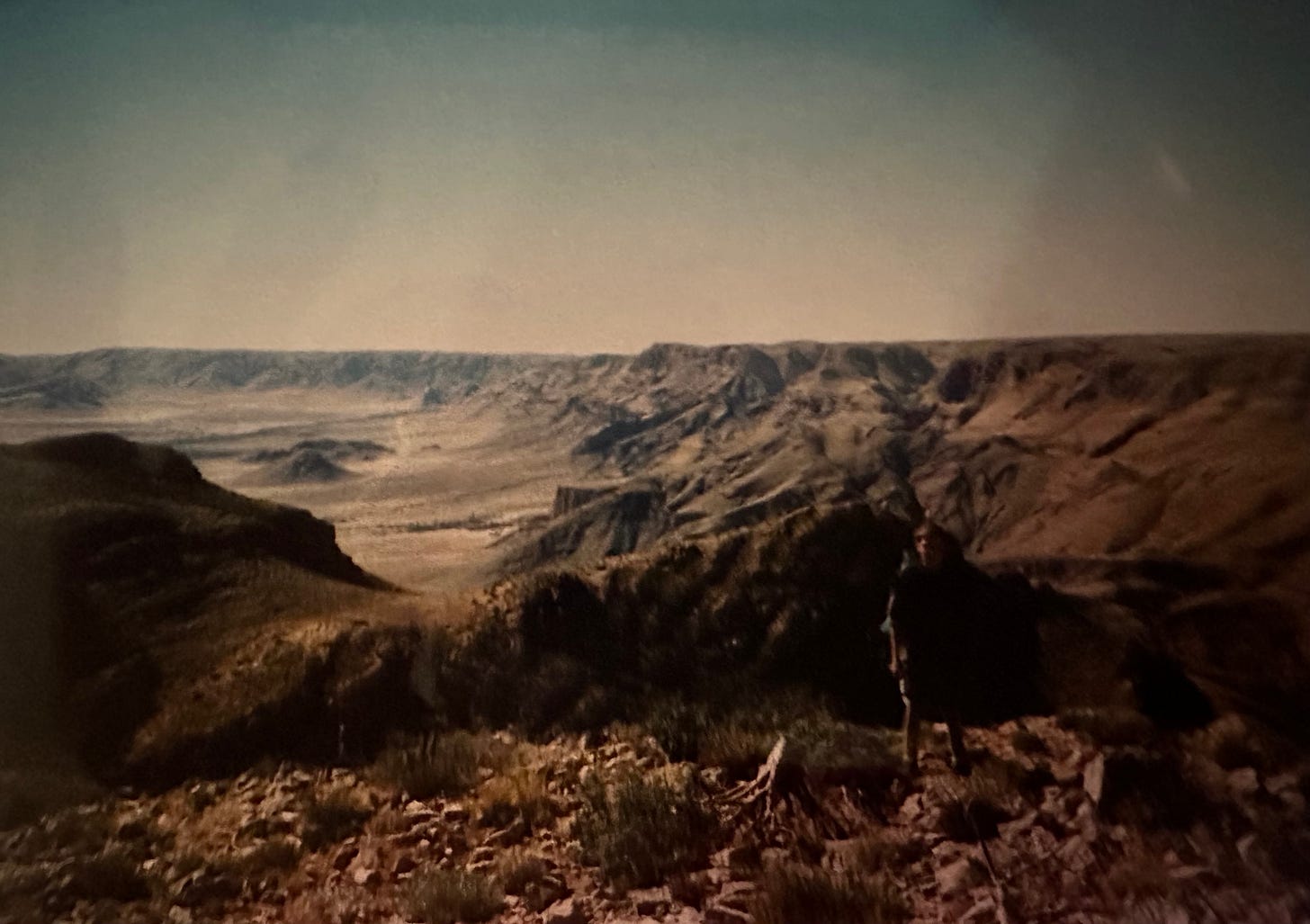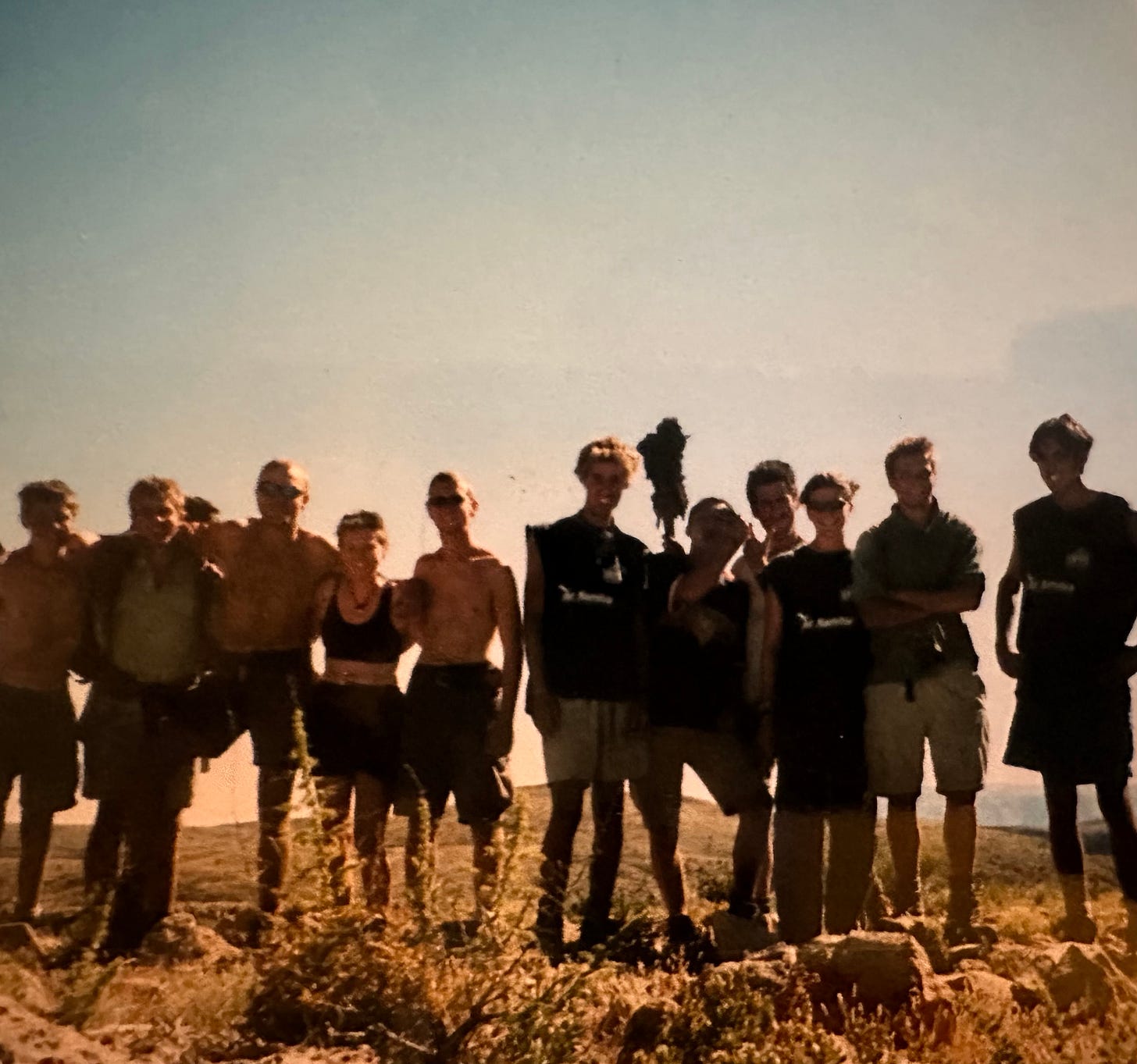Resurrecting Focal Practices
'The past is a foreign country; they do things differently there' L. P. Hartley
My first solo adventure was the year I left school and joined a Raleigh International expedition to Namibia. It had a good deal of the ‘gap yah’ cliche about it: hemp trousers, saviour complexes, and lots of chat afterwards about how much I had changed. To be fair, I think I was ahead of that particular cliche back in 2000; perhaps I even helped to shape it. Despite this, it was undoubtedly one of the happiest times of my life.
Of the many life giving aspects to the expedition, the relationships I made were the most enriching part. These were forged while working, cooking, and singing together, mostly around a fire. While I’ve found that it’s not possible to replicate that wide eyed sense of freedom that belongs to the young, the relational stuff is still there for the taking. It’s just that life is not set up that way anymore.
Counting the hidden costs
I returned from that expedition back into the arms of convenience and technology. At the turn of the century this mainly meant central heating, supermarkets, and easy travel. Depending on your vintage, you might recall the grindingly slow internet and lousy mobile phones we had twenty years back. Though at some point digital technology began taking steroids, a process described by Moore’s law. Life online then cycled through a succession of platforms which all had their walk in the sun. You might remember Friendster, Bebo, or Myspace, all of which now feel like a relic from social media’s adolescence.
Each of these offered an answer to a question nobody was asking, but soon couldn’t manage without. Many impossible things happened, unfathomable convenience was on offer. You could connect with strangers across the globe while staying seated; find a mate without the hassle of having to actually go and find a mate; do your shopping without the hassle of actually having to go to a shop.
These online platforms are free to use, which of course means that you are the product. This is even more true today. Though alongside this hidden cost, they entail subtle consequences that can’t be found in the small print. Communication technology leaves us feeling disconnected from others through the illusion of frictionless connection. The problem is well put by the Swiss playwright Max Firsch who said that
“Technology is the knack of so arranging the world that we do not experience it”.
When experience is abstracted from context and disembodied, it leaves us with a vague sense of alienation. This is our ambient reality today - it barely registers. With this loss, a certain register of feeling is muted; Jenny Odell writes “As the body disappears so does our ability to empathise”. In a world dominated by connectivity, we lose our ability to make sense of ourselves and one another; our experience of life becomes flat and emptied of meaning. EM Forster’s story The Machine Stops describes a dystopian world where people live underground and communicating with each other only through text and video messaging. It feels eerily prescient for a story published 1909.
We feel this problem in body and soul, with most people in the West describing themselves as basically lonely. In my conversation with Helena Norberg Hodge last season, she put it very eloquently:
‘As we start listening more to our inner voice, to our bodies, to our hearts and souls - we will become more aware of the dissonance between what we really want, who we really are, and this system that we’re ensnared in.’
Finding the way back
The philosopher Albert Borgmann might observe that my experience in Namibia felt rich because it contained so many focal practices which are no longer part of life. A focal practice is a centering force that brings people together: cooking, fire building, storytelling, working together manually. These all feel meaningful and rewarding, not least because they are embodied and conducive to relational depth. Without focal practices loneliness will never feel far from your shoulder, and the spirit will languish.
A factor worth pointing out is that focal practices are often socially demanding and require skill. I have noticed that many young people today struggle with the basics of eye contact and easy conversation. It’s no coincidence that these skills are formed through the focal practices that are now lacking from daily life. It then becomes more tempting to engage in life through a screen, at a physical remove from the awkwardness of reality. Jonathan Haidt and
have argued that the dire mental health issues faced by young people today are because a ‘screen based childhood’ has replaced a ‘play based childhood’.Focal practices can be a powerful antidote to our worst impulses, and capitalism’s strongest proclivities - one exploiting the other. This has been a recurring theme in some of my podcast conversations.
spoke about her desire to ‘trellis life’ with collective rituals that will support the kind of person she wants to become. Similarly, Dacher Keltner talked about the yearning many young people have for community, ritual, shared living - rituals which create the space for connection and feelings of awe. Madeliene Bunting lamented the fact that so many homes today don’t even have a dining table anymore, that nationally we have lost a sense of hospitality. Needless to say, the void left by our atomised existence is keenly felt by many.My trip to Namibia pitched me into a situation where I had no escape from other people or focal practices. Today however, that is not the case. Like most of us, my life is besieged by distraction and convenience, which I am often too feeble to resist alone (something I’ve written about in a previous post). Building focal practices into life requires intention, and the shunning of ease and convenience. Though I’m persuaded that if we resurrect some focal practices, part of ourselves might be resurrected in the process.



